Any use of chemical weapons is unacceptable and a clear violation of international law. Identifying those responsible and holding them to account is of paramount importance. We have a responsibility, particularly to the victims, to ensure accountability for the use of these heinous weapons.
In 2021, the COVID-19 pandemic continued to pose challenges to efforts aimed at upholding the global ban on chemical weapons. Nonetheless, by adjusting its working arrangements throughout the year, the Organisation for the Prohibition of Chemical Weapons (OPCW) fulfilled its mandate and commitment to ensuring the full and effective implementation of the Convention on the Prohibition of the Development, Production, Stockpiling and Use of Chemical Weapons and on Their Destruction (Chemical Weapons Convention).
As OPCW took forward its critical work of verifying the ongoing destruction of the world’s remaining declared chemical weapons stockpiles, it continued to carry out chemical industry inspections as conditions in the pandemic allowed. The OPCW Executive Council held its regular sessions under adapted modalities, thus fulfilling its obligation to ensure the Convention’s continued implementation.
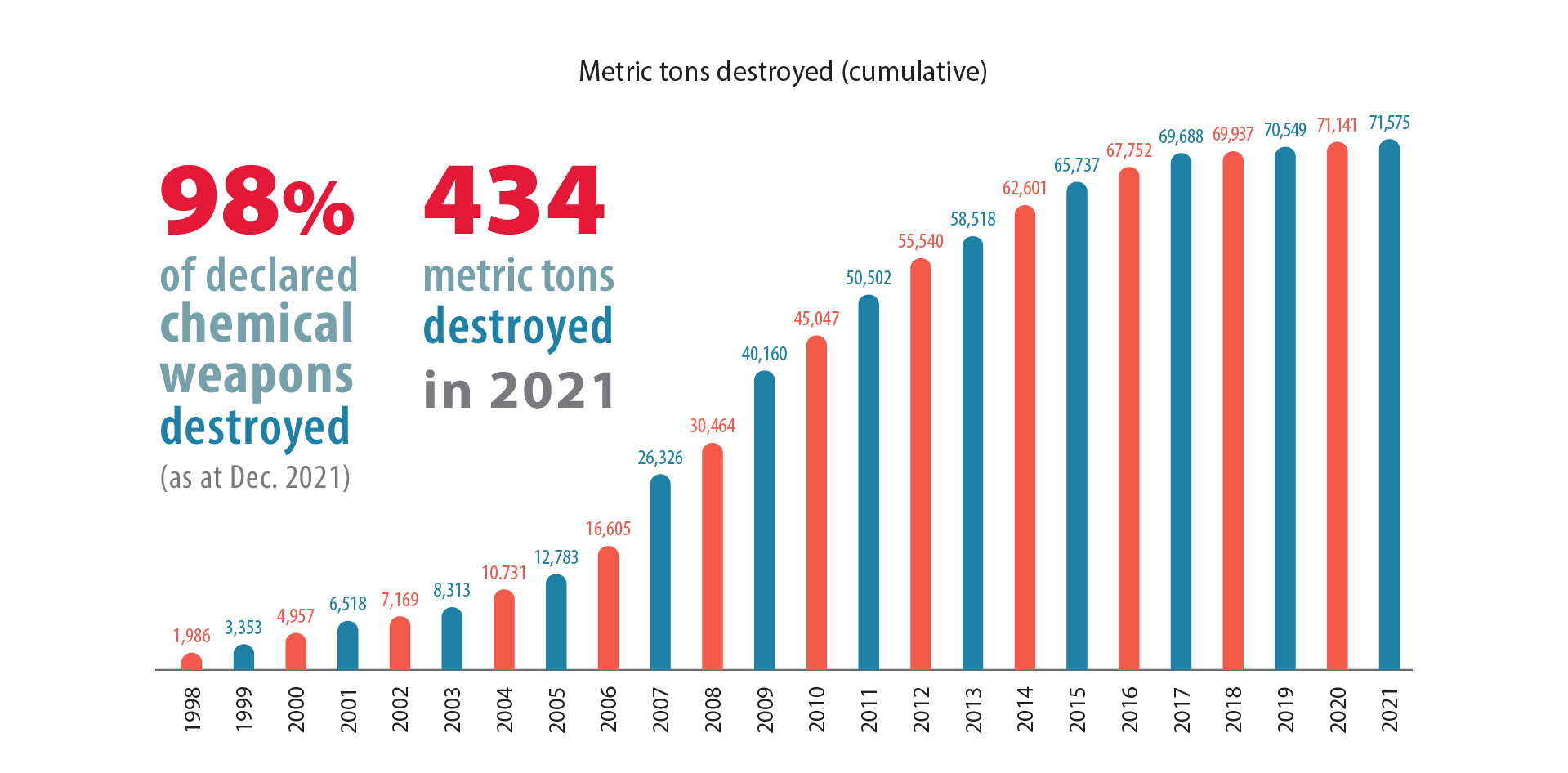
Since the Chemical Weapons Convention entered into force, some 72,000 metric tons of chemical weapons have been declared by eight possessor States parties. As at the end of 2021, more than 98 per cent of those declared chemical weapon stockpiles have been destroyed, all under verification by the Organisation for the Prohibition of Chemical Weapons. In 2021, 434 metric tons were destroyed.
Source: Organisation for the Prohibition of Chemical Weapons.
Meanwhile, the OPCW Technical Secretariat continued working to build capacities among States parties to prevent chemical weapons from re-emerging. The Technical Secretariat used online platforms and modules to continue its capacity-building programmes, assisting States parties and other stakeholders in promoting the peaceful uses of chemistry; advancing scientific and technological cooperation; countering the threats posed by non-State actors; and expanding partnerships with international organizations, non-governmental organizations, the chemical industry and other entities.
Other activities of OPCW in 2021 included notable progress in constructing its Centre for Chemistry and Technology (ChemTech Centre) within the planned timeline and budget. Additionally, OPCW continued to advocate for the universalization of the Chemical Weapons Convention, urging the remaining States not party to the Convention to join without delay or preconditions.
OPCW faced delays, however, in its activities to ensure that the Government of the Syrian Arab Republic resolves all gaps, inconsistencies and discrepancies that had arisen from the initial declaration of its chemical weapons programme. Despite those delays, the OPCW Fact-Finding Mission continued its work to establish the facts surrounding allegations of chemical weapons use in the Syrian Arab Republic. Likewise, the OPCW Investigation and Identification Team kept up its activities to identify the perpetrators of chemical weapons use in the country. The Team issued its second report in April. In the same month, the Conference of the States Parties decided to suspend certain rights and privileges of the Syrian Arab Republic, in accordance with article XII of the Convention.
The Secretary-General, for his part, continued to underscore the need to identify and hold accountable those who have used chemical weapons. In that regard, the Office for Disarmament Affairs supported the Secretary-General’s good offices in furthering the implementation of Security Council resolution 2118 (2013) on the elimination of the chemical weapons programme in the Syrian Arab Republic. The Office also worked with members of the Security Council in their efforts to build unity and restore adherence to the global norm against chemical weapons.
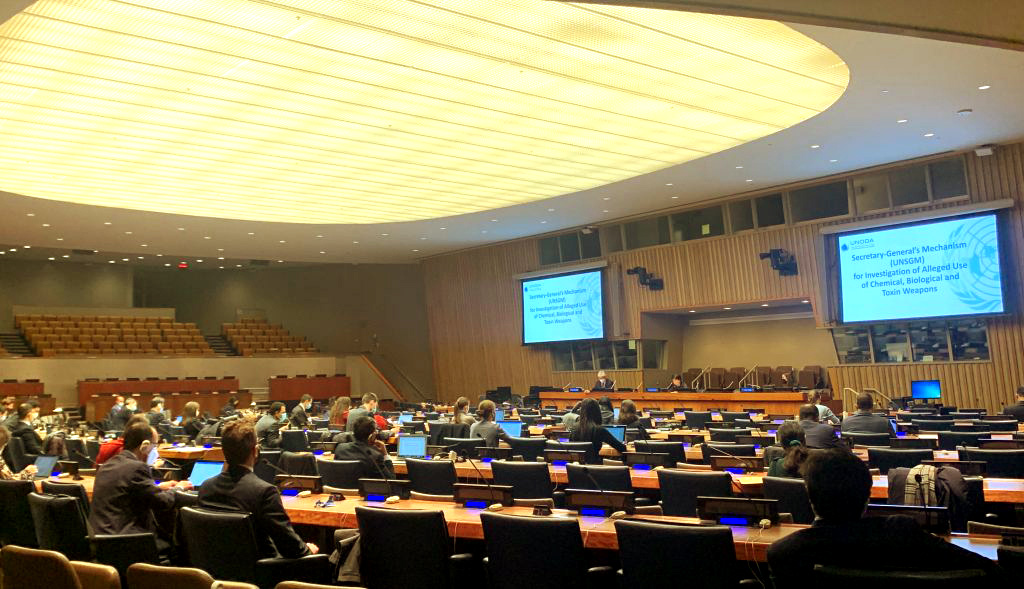
At a briefing for Member States on 22 November 2021 in New York on the Secretary-General’s Mechanism for Investigation of Alleged Use of Chemical and Biological Weapons.
Separately, as the global health situation permitted, States held several previously postponed meetings within the framework of the Convention on the Prohibition of the Development, Production and Stockpiling of Bacteriological (Biological) and Toxin Weapons and on Their Destruction (Biological Weapons Convention). The 2020 Meetings of Experts took place in Geneva from 30 August to 8 September 2021, and the 2020 Meeting of States Parties was held in Geneva from 22 to 25 November 2021. Then, as agreed upon at the Meeting of States Parties, the Preparatory Committee for the ninth Review Conference held its first meeting in Geneva on 20 December. The Committee decided to resume work in April 2022 and to schedule the ninth Review Conference later that year, from 8 to 26 August 2022. The States parties decided to hold both meetings in Geneva in an in-person format, in accordance with past practice for sessions of the Biological Weapons Convention.
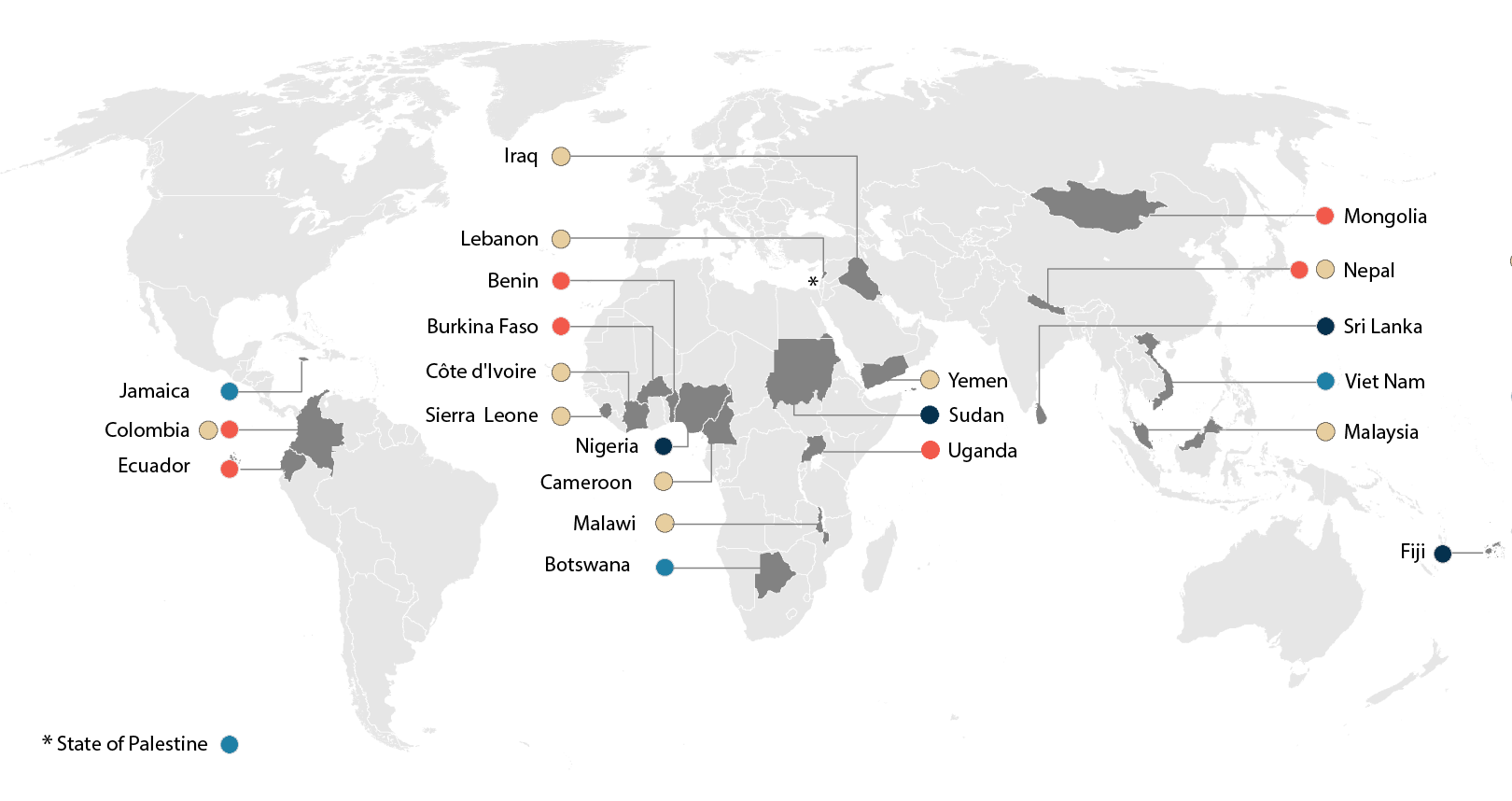
In the context of the support provided by the European Union to the Biological Weapons Convention, 23 States parties have so far benefited from assistance programmes to strengthen their capacities to implement the Convention at the national level.
The boundaries and names shown and the designations used on this map do not imply official endorsement or acceptance by the United Nations. Dotted line represents approximately the Line of Control in Jammu and Kashmir agreed upon by India and Pakistan. The final status of Jammu and Kashmir has not yet been agreed upon by the parties. Final boundary between the Republic of Sudan and the Republic of South Sudan has not yet been determined. A dispute exists between the Governments of Argentina and the United Kingdom of Great Britain and Northern Ireland concerning sovereignty over the Falkland Islands (Malvinas).
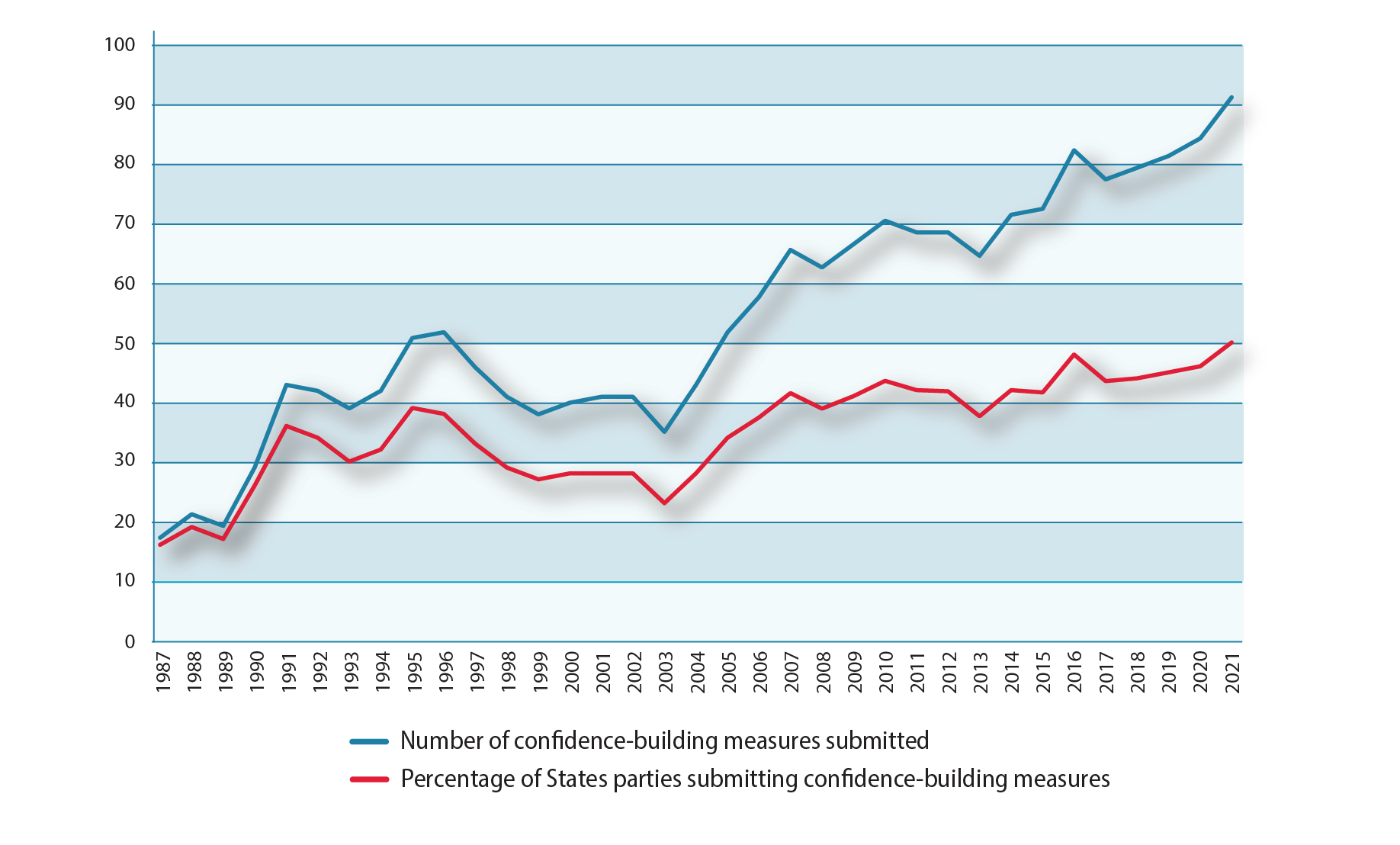
This graph shows the confidence-building measures submissions made by States parties since their introduction in 1987. While the overall level of participation in the confidence-building measures has remained low over the years, a slightly positive trend can be seen in the recent years. In 2021, 92 States parties submitted confidence-building measures, resulting in a participation rate of more than 50 per cent, the highest so far.
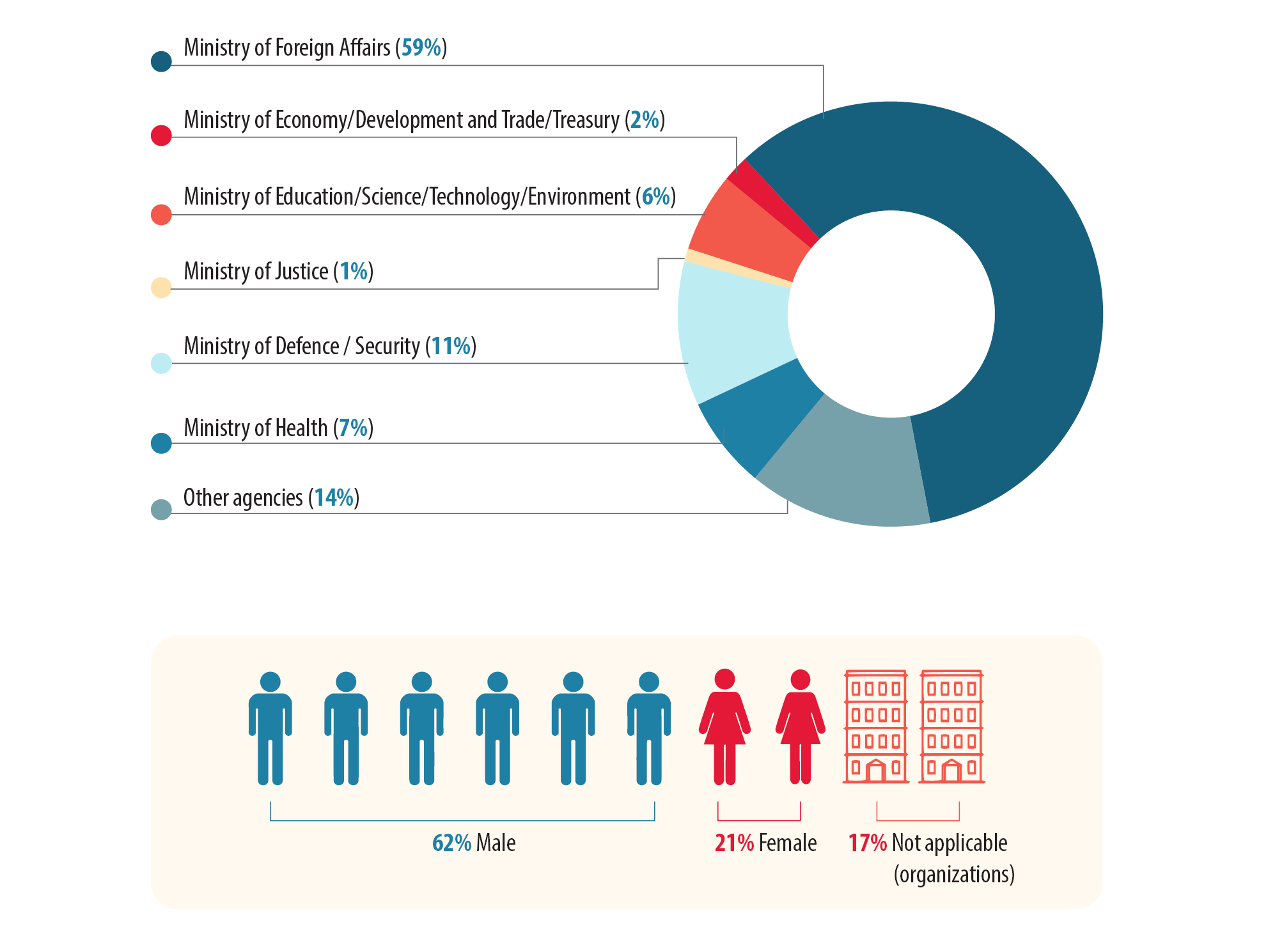
This infographic displays the worldwide affiliation of national contact points, by national agencies or ministries, as well as distribution by gender.
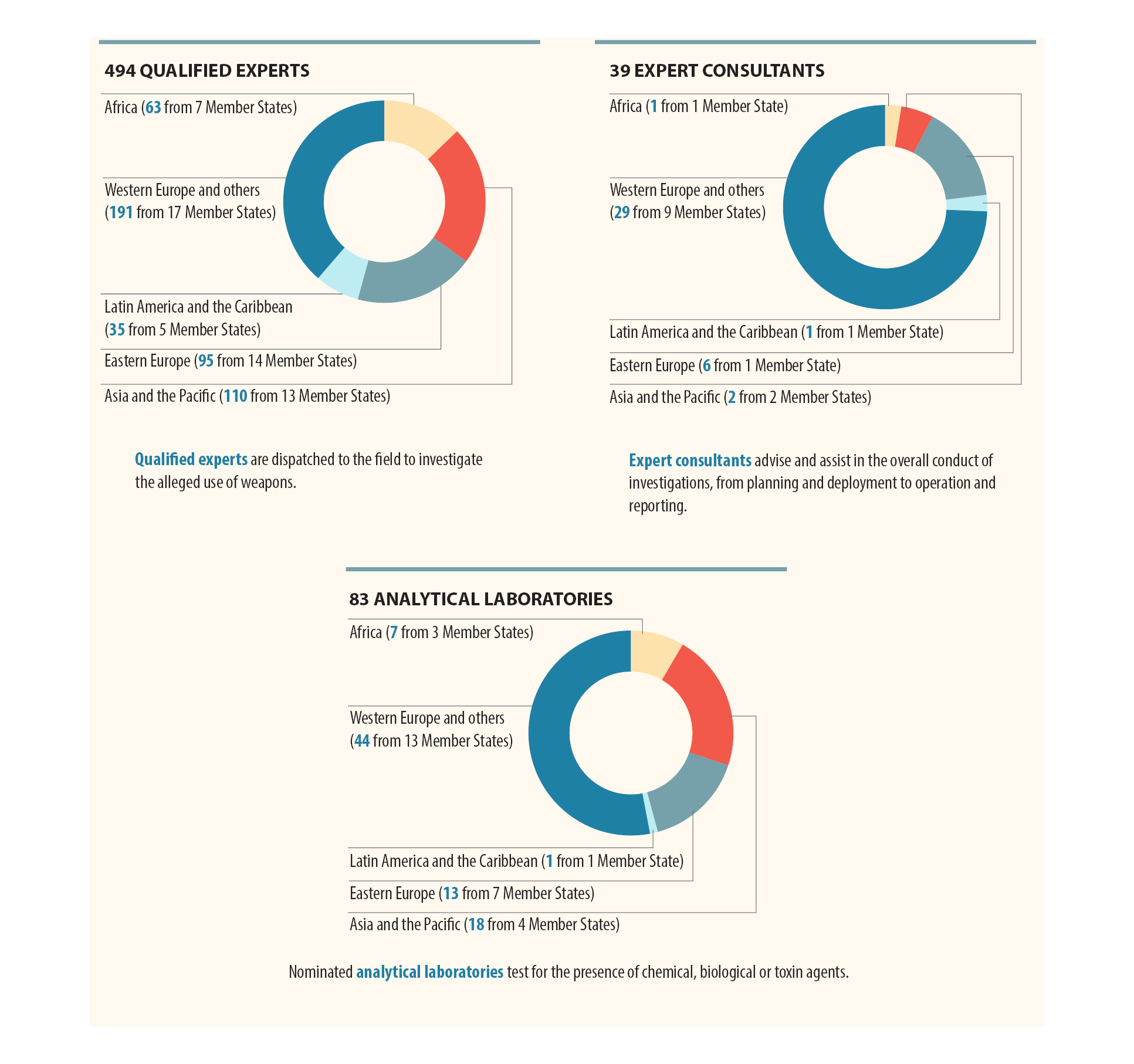
The Secretary-General has a mandate to carry out investigations when Member States bring to his attention the alleged use of chemical or biological weapons. To fulfil this mandate, the Secretary-General’s Mechanism for Investigation of Alleged Use of Chemical and Biological Weapons was established. Under the Mechanism, a roster of experts and laboratories is maintained. The United Nations relies on countries to fill the roster by designating technical experts to deploy to the field on short notice, as well as analytical laboratories to support such investigations. Member States facilitate further training of qualified experts and expert consultants in close cooperation with the Office for Disarmament Affairs.
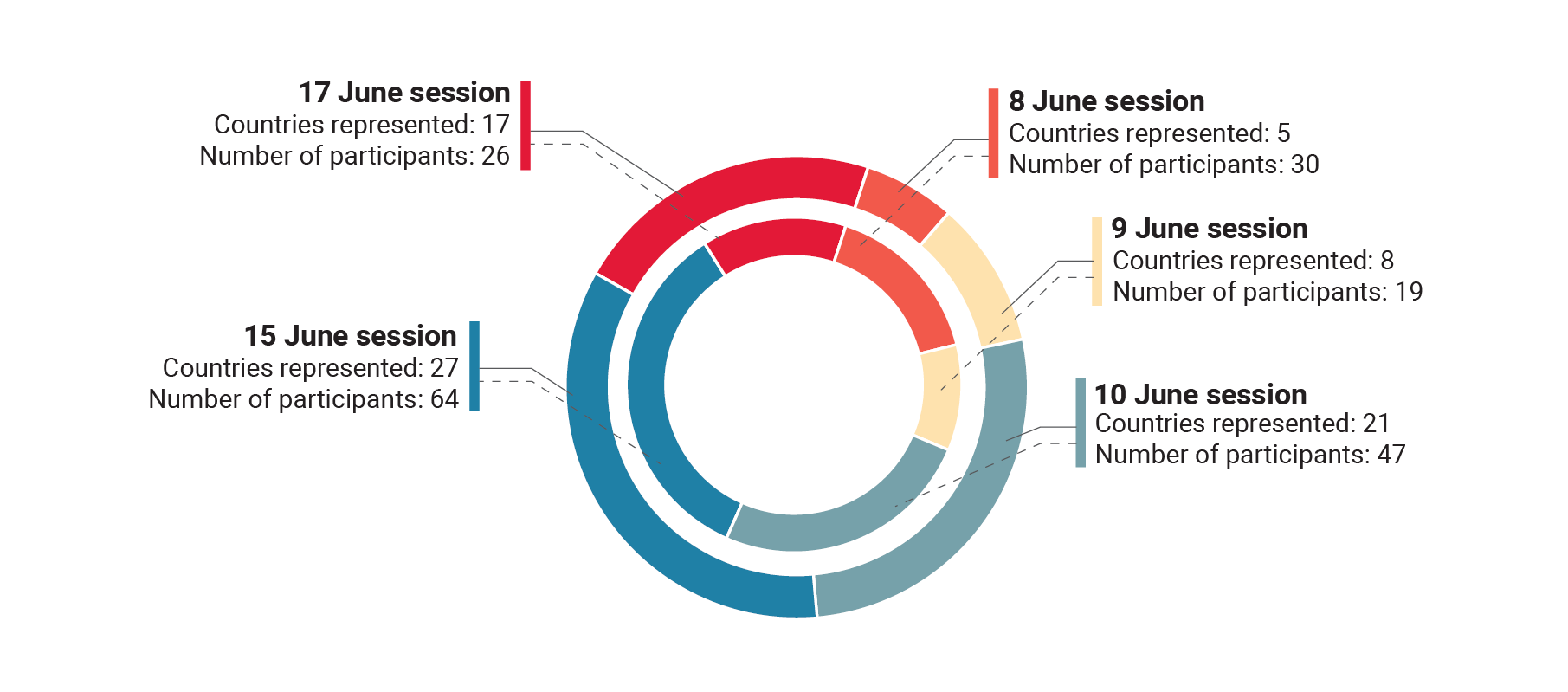
From 8 to 17 June 2021, the Office for Disarmament Affairs hosted five virtual onboarding sessions for all qualified experts, expert consultants and points of contact for analytical laboratories who have been nominated by their Governments to the roster of the Secretary-General’s Mechanism. Over 180 participants from 40 countries joined the sessions across several time zones. That was the first time the Office conducted such onboarding sessions. Going forward, the sessions are to be held annually for newly nominated experts and laboratories.